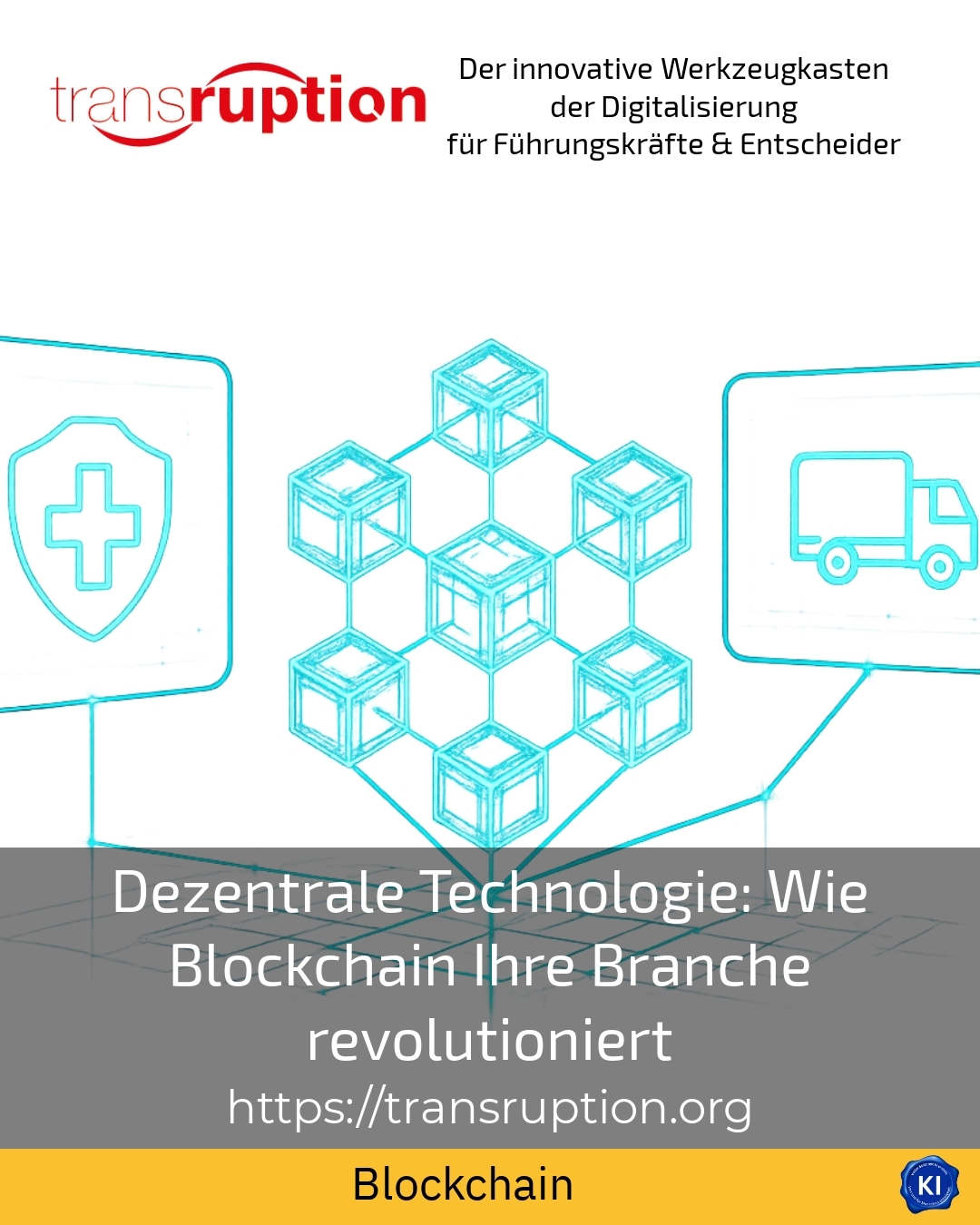In today's digital world, decentralised technology is becoming increasingly important. This technology makes it possible to distribute control and thus optimise a large number of processes that were previously centralised. Decentralised technology can be found in particular in blockchain technology, where it improves the security, transparency and efficiency of transactions[1][2]. In the following, we will look at the most important aspects of decentralised technology and see how it is revolutionising various industries.
Decentralised technology: what is it?
Decentralised technology refers to the distribution of authority and control within a network. This means that no single entity has sole power over data or decisions. Instead, independent nodes act together to verify and confirm transactions[3]. A key example of this is blockchain technology, which is widely used in the financial industry and offers a high level of security due to its decentralised nature[4][5].
Security and transparency
Decentralised technology is particularly secure as it has no central weak point. Even if part of the network is compromised, the rest remains functional[1]. Every transaction is recorded transparently and visibly for all participants, which increases trustworthiness and control in the network[2]. An example of this is the use of smart contracts, which enable automated business agreements without the need for an intermediary[3].
Practical applications of decentralised technology
A significant advantage of decentralised technology is its applicability in various sectors. For example, it is used in logistics to make supply chains more transparent and efficient. Smart contracts can automatically trigger payments when goods arrive at a certain location, which speeds up the entire process and increases security[3].
BEST PRACTICE with one customer (name hidden due to NDA contract)A company in the insurance industry used decentralised technology to manage its customers' claims more transparently. By introducing blockchain technology, both parties were able to create an independent and publicly accessible record of all transactions, increasing trust between insurer and customer.
Decentralised networks in practice
Decentralised networks are not only found in the financial sector, but also in other areas such as healthcare or the food industry. They help to securely store data and control access to it. One example of this is the use of blockchain to track medicines in order to guarantee their authenticity and safety[4].
Decentralised technology: future prospects
The future of decentralised technology looks very promising. It not only offers advantages in terms of security and transparency, but can also increase efficiency and cost-effectiveness in many industries. However, the integration of decentralised technology into existing systems requires careful planning and implementation to realise its full potential[8].
Support with implementation
To overcome the challenges of implementing decentralised technology, it is important to make use of experienced coaching. A coaching programme can help companies to take full advantage of the benefits of decentralised technology and make the transition to新的 processes effective.
My analysis
Overall, decentralised technology has the potential to revolutionise various industries. With its ability to make transactions more transparent and secure, it offers an innovative solution to many of today's challenges. Decentralised technology will continue to play a central role in the future of digital transformation.
Further links from the text above:
For a more in-depth look at the topic of decentralised technology, we recommend the following sources:
What is decentralisation in blockchain?
What is blockchain technology?
For more information and if you have any questions, please contact Contact us or read more blog posts on the topic TRANSRUPTION here.
















